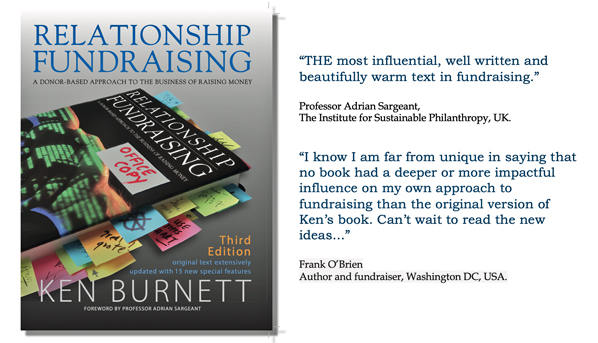|
Blog 29th August 2016. Continuing an occasional series featuring issues Donor-centred, donor-focused and donor-led are all already part of the fundraiser’s lexicon. At this time of great change for fundraisers, perhaps we could aspire to create our own useful new meanings?... New words and phrases should be created by the score. We should look out for them, encourage and celebrate them.
|
The Scottish philosopher and man of letters Thomas Carlyle (1795 -1881) was an original thought leader long before the term was ever dreamt of. He was also one of the great social commentators and inspirers of his time. Apart from being the most sought-after host in Victorian London, a prolific author, teacher, historian and Nobel prize winner, Carlyle is famous for the number of words and phrases that he invented in the course of his deep thinking that have now become commonly accepted and widely used in our language, with instantly obvious power and purpose. According to The Oxford English Dictionary words and phrases that Carlyle is credited as adding to the English lexicon include
And numerous others too, useful constructs all. Sometimes it’s a completely new creation. Often it’s just a case of pairing two good old words together to create a new meaning. Sometimes the new word would be imported from another language, or a new prefix or suffix added. Or he’d make an adjective from a verb, or an adverb from a noun, or vice versa. At this time of great change for fundraisers, perhaps we could aspire to do no less, to create our own useful new meanings? Carlyle also tried a few that didn’t make it into the public mind, including
You can’t win ‘em all. But that doesn’t mean you shouldn’t try. I can perhaps claim the phrase relationship fundraising as one of mine. If I were optimistic I might also file the rights to the term responder, meaning a pre-donor who has shown initial interest but hasn’t yet been properly engaged. And non-responder, those people on our donorbase fundraisers routinely ignore, because they’re in the 90+ per cent who don’t respond each and every time we ask, yet we’ve not quite realised they’ve mostly stopped giving or even wanting to hear from us. Donor-centred, donor-focused and donor-led are all already part of the fundraiser’s lexicon. But we need to invest these terms with fresh relevance, meaning and understanding, if the fundraising revolution is going to stick. I’d like to suggest adding the following, in the hope they too could become accepted, understood and widely used, at least in our trade.
I’m sure you can think of more. And better. USA based website The Agitator has suggested chief customer officer Long ago Giles Pegram proposed the 90-degree shift, to describe the process we go through to see through our donors’ eyes, to wear our donors’ shoes. The incomparable George Smith invested a whole new orthodoxy in the phrase Asking Properly. Continued top of column 2, above.
|

Continued from column 1, below. So, it’s an honourable tradition. With the coming revolution in how fundraisers relate to donors it should be continued, even encouraged. New words and phrases should be created by the score. We should look out for them, encourage and celebrate them. I like this one, from Francesco Ambrogetti, emotionraising, meaning the application of neuroscience to fundraising. Then there’s Jen Love and Tom Ahern’s loverising. Not sure about that one, though the sentiment is great. Alan Clayton has already given fundraisers quite a few, including radiators, not drains, simple ≠ easy and his latest, emotion + integrity = brilliant fundraising. I’m sure there are more equations we might consider. How about passion + inspiration = great retention rates? Of course anyone can be a word-spinner. No one has exclusive use of the concept. So can you suggest any more? Let’s all work at it. Necessity is the mother of invention, and all that.
© Ken Burnett 2016. Related earlier articles: Please note 1: Ken Burnett is managing project 6 for the Commission on the Donor Experience, The use and abuse of emotion. If you have something you’d like to add about improving the donor experience emotionally, or if you fancy writing up some emotional case histories, please get in touch. Please note 2: though Ken Burnett was joint initiator of the Commission on the Donor Experience (with Giles Pegram CBE) and is fully committed to helping it to achieve its goals, the views in these blogs are his own. Home page | Current blogs | Article archive
|
||




